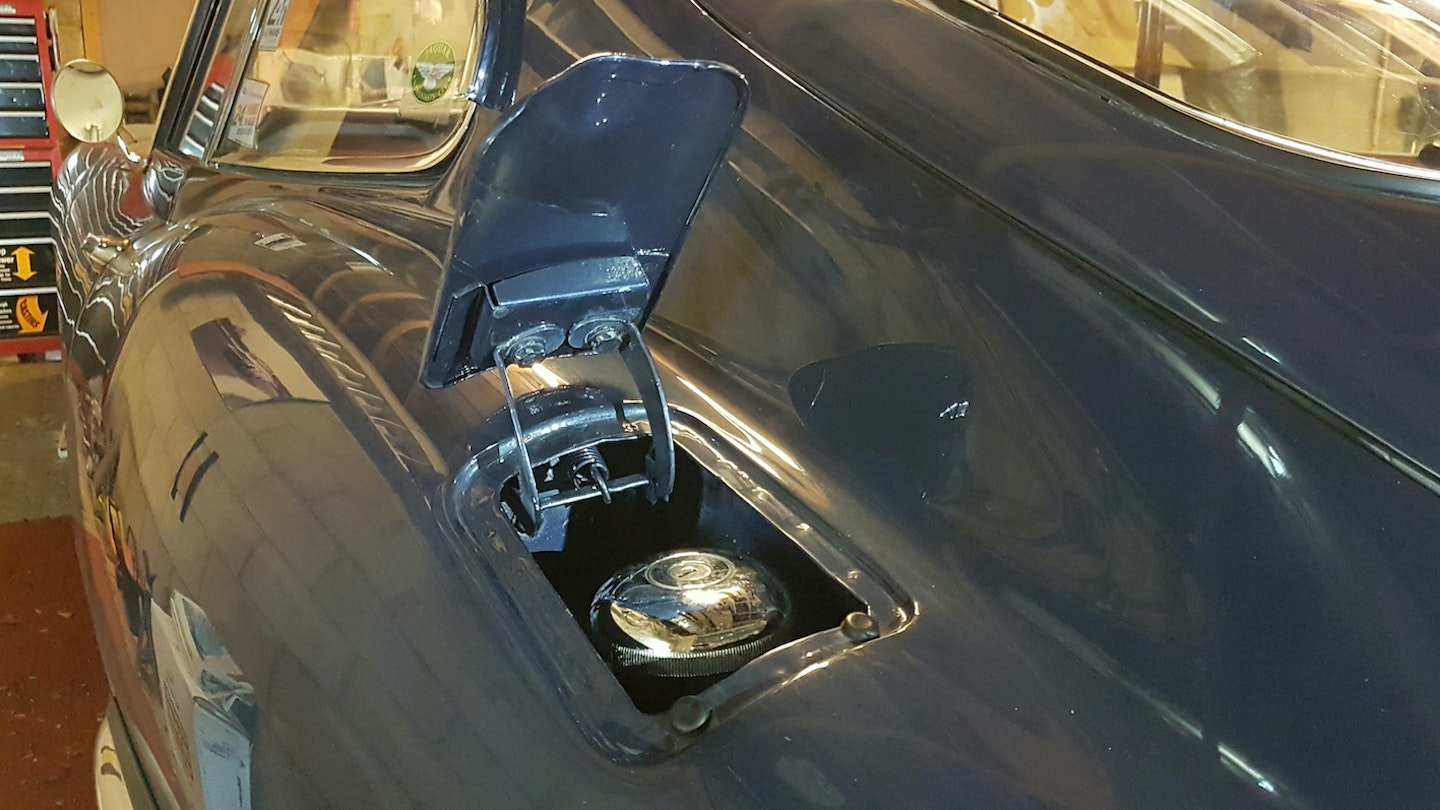The truth about how ethanol in fuel can damage your classic car. We explain how to avoid it.
E10 fuel in the UK
From 1 September 2021, regular 95 octane unleaded petrol in the UK could contain up to 10% ethanol and is labelled E10, replacing the old E5 95 octane unleaded that could contain up to 5% ethanol.
Ethanol and classic engines
Ethanol is added to petrol to make it burn more cleanly, but is has a number of side-effects, particularly on classic engines and their fuel systems.
- Because each molecule of ethanol contains one oxygen atom, it makes the petrol it is added to burn more leanly, which can affect performance and engine temperatures.
- Ethanol degrades several flexible materials commonly found in older fuel systems, including seals and pipework, leading to leaks. For a list of ethanol-incompatible materials and suggested replacements, see the fuels page on the Federation of British Historic Vehicle Clubs website (www.fbhvc.co.uk/fuels) and scroll down to the ethanol section.
- Because classic cars tend to be used infrequently and are commonly laid up for long periods, particularly over winter, they are more prone to the next two ethanol-related problems. The first is that ethanol is hygroscopic, meaning that it absorbs water from the atmosphere. Until closed-circuit fuel systems arrived with modern fuel injection, fuel tanks and carburettor float chambers vented to the atmosphere. Absorbed water vapour will settle out in fuel tanks, causing corrosion in steel tanks and fuel lines, and rough running as the water disrupts the correct atomisation and combustion of petrol.
- The second infrequent use-related problem is that ethanol oxidises to create acidic by-products that corrode aluminium and brass components found in fuel systems and engines.
How can I avoid or minimise ethanol-related problems
- Leaner combustion can be compensated for by enriching the fuel/air mixture.
- Replace fuel system components with those made from ethanol-compatible materials where possible.
- Use super unleaded petrol.
- Use your classic regularly enough to ensure that the fuel in it is regularly replaced by fresh petrol.
- Use a specialist corrosion inhibitor petrol additive.
- When storing a car longer term, for example, over winter, drain the fuel tank, lines, filters and carburettors.
Are more modern classics safe to use E10?
Most but not all cars built after 2000 can use E10 blended fuels. To check your car, visit www.gov.uk/check-vehicle-e10-petrol
Protection-grade super unleaded
The All Party Parliamentary Historic Vehicle Group has ensured that super unleaded (97 or higher octane) petrol will continue to be limited to a maximum of 5% ethanol for five years, and it will push for availability to be extended in the future.
Do any brands or grades of petrol contain no ethanol?
Until 2023, Esso supplied ethanol-free super unleaded to some parts of the country, but this is no longer the case. Classic Cars is unaware of any other brands supplying ethanol-free gasoline for public use but if you know differently, please get in touch with the magazine.
Synthetic fuel
Synthetic gasoline is now available in the UK, chemically identical to the fossil fuel-derived petrol, though blended with the needs of classic vehicles in mind so contains no ethanol. The first outlet – Motor Spirit –was established in June 2023 at the Bicester Heritage site in Oxfordshire and the network is gradually spreading from there. At the time of writing, Coryton Classic Super 80 – made with 80% renewables – costs £4.65/litre at the pump. A range of drum sizes is also available.
How green is synthetic fuel?
Because it's gasoline, its emissions of greenhouse gases at the tailpipe are the same as that fractionated from crude oil. However, its manufacture from renewable components using renewable energy makes it net zero.
Other useful pages
• MoT and road tax exemption
• White/silver-on-black number plate rules
• ULEZ exemption
